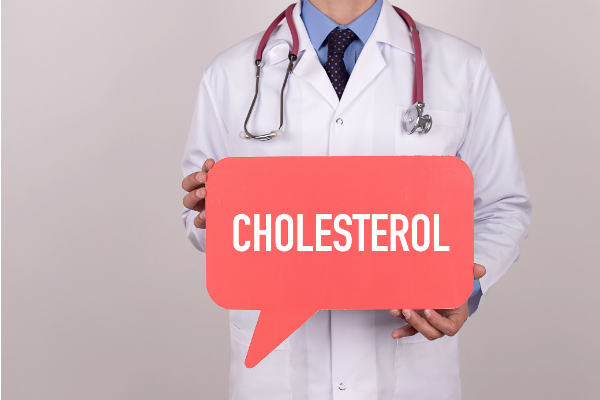Maintaining healthy cholesterol levels can help lower your risk of heart disease and improve your overall well-being. But what is good and what is bad cholesterol?
Cholesterol plays a role in your body’s production of certain hormones, the digestive process, and vitamin D production. While you need healthy levels of cholesterol in your body, high cholesterol can lead to health issues that can negatively impact your heart.
Your body naturally makes cholesterol, but one key to protecting yourself from heart disease and other health issues is maintaining healthy cholesterol levels. First, you should know the difference between good and bad cholesterol.
Good Cholesterol vs. Bad Cholesterol
Your body has both good and bad cholesterol. Good cholesterol is high-density lipoprotein (HDL) cholesterol, while bad cholesterol is low-density lipoprotein (LDL) cholesterol. Lipoproteins are cholesterol carriers composed of proteins and fat that move cholesterol through your blood. LDL cholesterol can build up inside your arteries and increase your risk of heart disease.
High levels of LDL cholesterol in your arteries can lead to plaque build-up, which raises your risk of heart attack, stroke, and other potentially serious health issues. HDL cholesterol moves cholesterol from other areas of your body to your liver, where it is eliminated. Having higher HDL cholesterol levels helps prevent LDL cholesterol from building up in your arteries.
Risk factors for high cholesterol and heart disease
Several risk factors can lead to an increased risk for high cholesterol levels and developing heart disease. These involve being overweight, eating too many foods that are high in cholesterol and saturated fats, a sedentary lifestyle, menopause, and a family history of high cholesterol.
If you have high LDL cholesterol levels, your risk of heart disease increases. Additional risk factors for heart disease include smoking, high blood pressure, and a family history of heart disease.
Maintaining healthy cholesterol levels
You can maintain or increase HDL cholesterol levels and lower your LDL levels in several ways:
- Know your cholesterol levels – Have your levels checked at least once every five years, and more often if you have risk factors for high cholesterol. You can have your levels tested at your local community health center.
- Incorporate heart-healthy foods into your diet – Some foods can lower your LDL cholesterol levels and increase your HDL levels, like lean meats, low-fat dairy products, salmon, oats, fruits, and high-fiber foods.
- Exercise regularly – Participating in physical activity regularly for at least 30 minutes daily can help you lose weight and increase your HDL cholesterol level.
If you are concerned about your cholesterol levels, schedule an appointment with a primary care provider or call ARcare at (866) 550-4719. Our community health clinics in Arkansas are dedicated to keeping you healthy; we can help monitor and treat your cholesterol levels and create a plan tailored to your medical needs. With our federally qualified health centers, we provide care for all people—whether you have health insurance or not.
